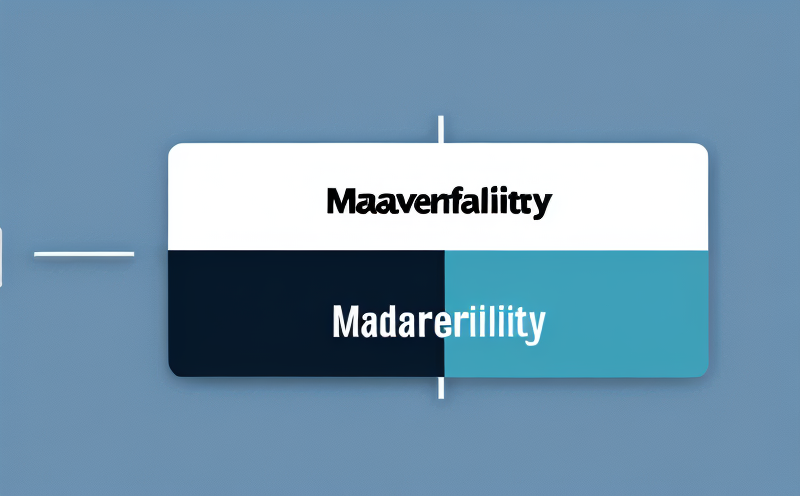Unlock the Secrets of Material Compatibility A Game-Changer for Businesses
In todays fast-paced and competitive business landscape, companies are constantly seeking innovative ways to optimize their products and processes. One crucial aspect that often goes overlooked is material compatibility a laboratory service provided by Eurolab that can make all the difference between success and failure.
Material compatibility refers to the ability of different materials to work together without compromising their properties or performance. Its a critical consideration in various industries, including manufacturing, construction, aerospace, automotive, and more. When materials are incompatible, it can lead to subpar products, decreased efficiency, and even safety risks.
At Eurolab, we understand the importance of material compatibility and offer a comprehensive laboratory service to help businesses ensure their materials meet the required standards. Our team of experts uses state-of-the-art equipment and techniques to analyze and evaluate the compatibility of various materials, providing valuable insights that can transform your product development and manufacturing processes.
The Advantages of Material Compatibility Why It Matters
Using material compatibility testing services from Eurolab offers numerous benefits for businesses
Improved Product Reliability By identifying potential incompatibilities early on, you can avoid costly reworks, recalls, or even worse product failures that compromise customer safety.
Increased Efficiency Our laboratory service helps optimize your supply chain by ensuring materials are compatible from the outset, reducing the need for costly material changes and minimizing downtime.
Enhanced Customer Satisfaction With Eurolabs material compatibility testing, you can guarantee products meet or exceed customer expectations, leading to increased loyalty and repeat business.
Reduced Material Waste By selecting the right materials from the start, youll minimize waste and reduce environmental impact a crucial consideration for businesses with sustainability goals.
Key Benefits of Eurolabs Material Compatibility Service
Our material compatibility testing service provides numerous benefits, including
Comprehensive Analysis Our experts use advanced techniques to evaluate material interactions, providing detailed reports on compatibility levels.
Customized Solutions We work closely with your team to understand specific requirements and develop tailored testing strategies.
Rapid Turnaround Times Our laboratory is equipped with cutting-edge equipment, ensuring quick turnaround times without compromising results accuracy.
Expert Consultation Eurolabs experienced scientists offer valuable insights and recommendations to help you optimize material selection and product development.
Frequently Asked Questions about Material Compatibility
Here are some common questions and answers
Q What types of materials can be tested for compatibility?
A We can analyze a wide range of materials, including metals, polymers, ceramics, composites, and more.
Q Why is material compatibility essential in certain industries?
A Industries like aerospace, automotive, and construction require specific standards for material compatibility to ensure product safety, reliability, and performance.
Q How long does the testing process typically take?
A Our laboratory service offers rapid turnaround times, with results available within a few days or weeks, depending on the complexity of the analysis.
Q Can Eurolab provide customized testing protocols for specific applications?
A Yes, our experts work closely with your team to develop tailored testing strategies that meet unique requirements and standards.
Conclusion
Material compatibility is no longer a nicety its an essential consideration for businesses seeking to optimize their products, processes, and bottom line. At Eurolab, were committed to providing expert laboratory services that help companies like yours ensure material compatibility.
By choosing Eurolabs material compatibility testing service, youll gain valuable insights into material interactions, reduce the risk of product failures, and enhance customer satisfaction. Dont wait until its too late unlock the secrets of material compatibility with Eurolab today.
-
Testing chemical resistance of materials in various industrial environments
-
Evaluating how different materials react when exposed to specific chemicals
-
Assessing the long-term compatibility of materials with various chemical substances
-
Determining how chemicals affect the physical properties of metals, plastics, and ceramics
-
Simulating material failure under different chemical exposures in manufacturing processes
-
Evaluating the impact of chemical exposure on material integrity in harsh environments
-
Ensuring that chemical formulations do not compromise the strength or performance of materials
-
Assessing compatibility with materials used in packaging, coatings, and containers
-
Testing the impact of aggressive chemicals on seals, gaskets, and other critical components
-
Evaluating the interaction between different chemicals and materials used in consumer products
-
Testing the effect of chemical exposure on elastomers and rubber materials
-
Assessing the compatibility of composite materials with aggressive chemicals used in industrial applications
-
Ensuring that chemicals do not cause degradation or corrosion of equipment, pipelines, or tanks
-
Simulating different chemical exposure scenarios to determine material suitability and durability
-
Testing materials for compatibility with chemicals at different temperatures, pressures, and conditions
-
Evaluating chemical interactions between two or more substances and their effect on material properties
-
Testing the compatibility of materials used in the automotive, aerospace, and medical industries with chemicals
-
Determining the best material choices for applications involving aggressive chemical environments
-
Testing the effects of chemical exposure on surface finishes, including coatings and plating
-
Ensuring the safe use of chemicals in consumer goods by testing material compatibility for health and safety
-
Evaluating the stability of materials over time when exposed to chemicals in manufacturing and storage
-
Determining the performance of coatings and films when exposed to various chemicals used in industrial processes




